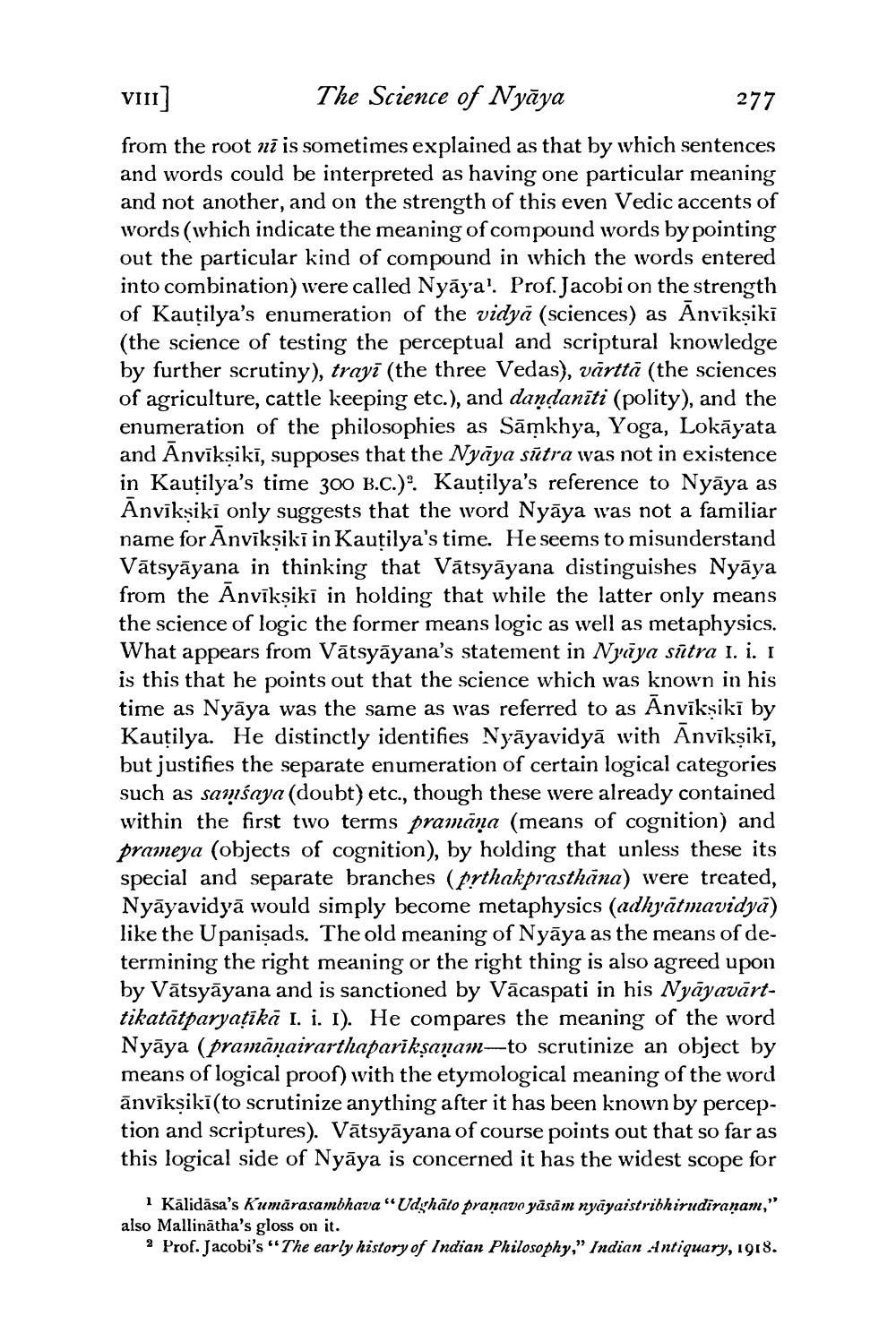________________
vi]
The Science of Nyāya
277
from the root ni is sometimes explained as that by which sentences and words could be interpreted as having one particular meaning and not another, and on the strength of this even Vedic accents of words (which indicate the meaning of compound words by pointing out the particular kind of compound in which the words entered into combination) were called Nyaya'. Prof. Jacobi on the strength of Kautilya's enumeration of the vidyā (sciences) as Anviksiki (the science of testing the perceptual and scriptural knowledge by further scrutiny), trayī (the three Vedas), vārttā (the sciences of agriculture, cattle keeping etc.), and dandanīti (polity), and the enumeration of the philosophies as Sāmkhya, Yoga, Lokāyata and Anvīksikī, supposes that the Nyāya sūtra was not in existence in Kautilya's time 300 B.C.). Kautilya's reference to Nyāya as Anviksiki only suggests that the word Nyāya was not a familiar name for Anvikșiki in Kautilya's time. He seems to misunderstand Vātsyāyana in thinking that Vátsyāyana distinguishes Nyāya from the Anvikșiki in holding that while the latter only means the science of logic the former means logic as well as metaphysics. What appears from Vātsyāyana's statement in Nyāya sūtra 1. i. I is this that he points out that the science which was known in his time as Nyāya was the same as was referred to as Anvīksikī by Kautilya. He distinctly identifies Nyāyavidyā with Anvīksikī, but justifies the separate enumeration of certain logical categories such as samsaya (doubt) etc., though these were already contained within the first two terms pramāņa (means of cognition) and prameya (objects of cognition), by holding that unless these its special and separate branches prthakprasthāna) were treated, Nyāyavidyā would simply become metaphysics (adhyātmavidya) like the Upanişads. The old meaning of Nyāya as the means of determining the right meaning or the right thing is also agreed upon by Vātsyāyana and is sanctioned by Vācaspati in his Nyāyavārttikatātparyaţikā I. i. 1). He compares the meaning of the word Nyāya (pramāṇairarthapariksaņam—to scrutinize an object by means of logical proof) with the etymological meaning of the word ānvikșiki(to scrutinize anything after it has been known by perception and scriptures). Vātsyāyana of course points out that so far as this logical side of Nyāya is concerned it has the widest scope for
i Kālidāsa's Kumārasambhava“Udghāto pranavo yāsām nyāyaistribhirudiranam," also Mallinātha's gloss on it.
2 Prof. Jacobi's "The early history of Indian Philosophy," Indian Antiquary, 1918.




